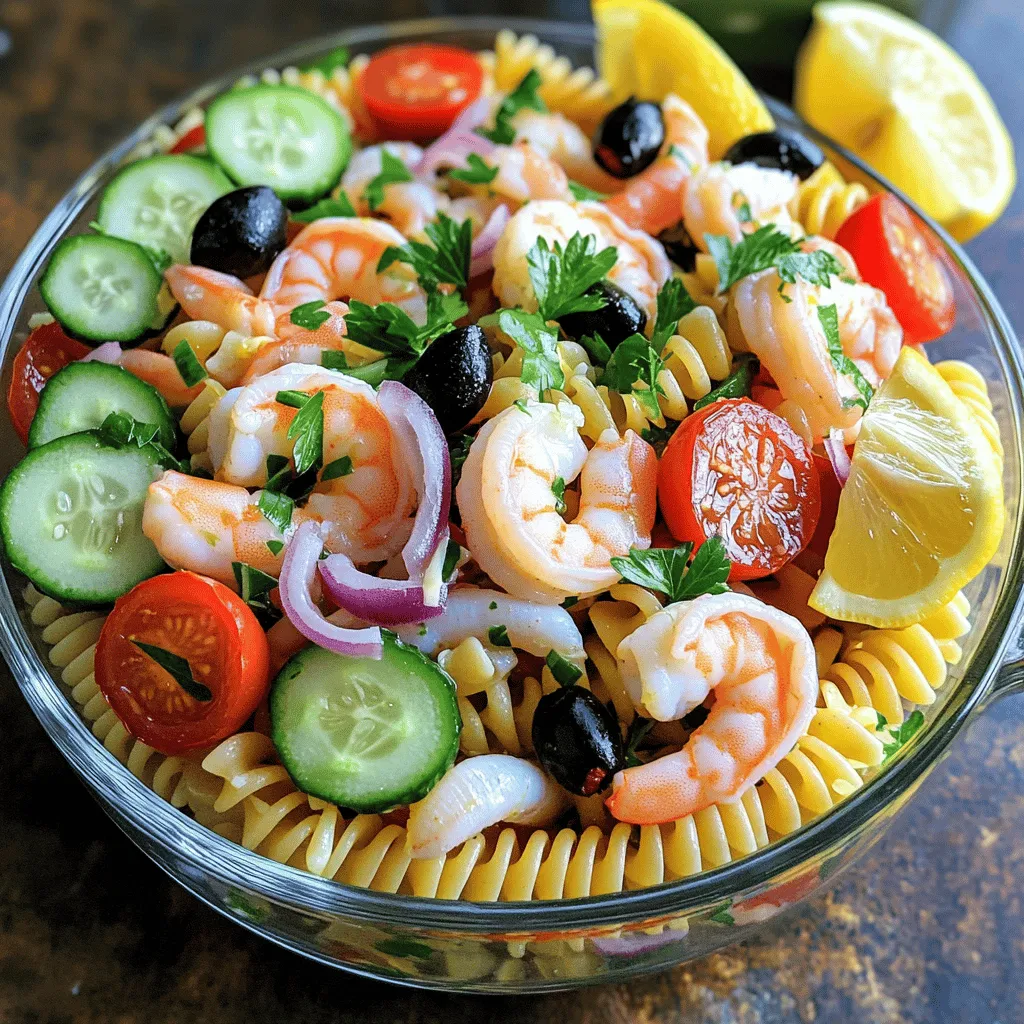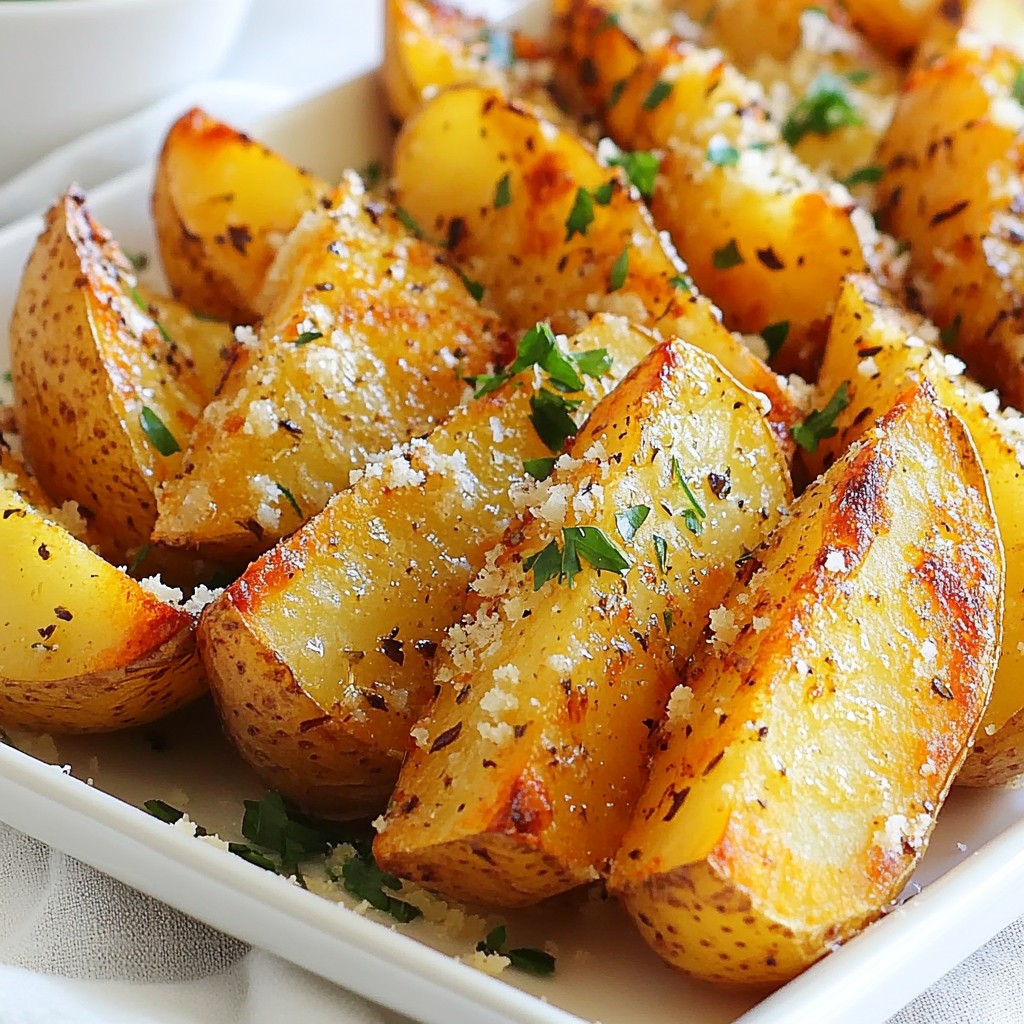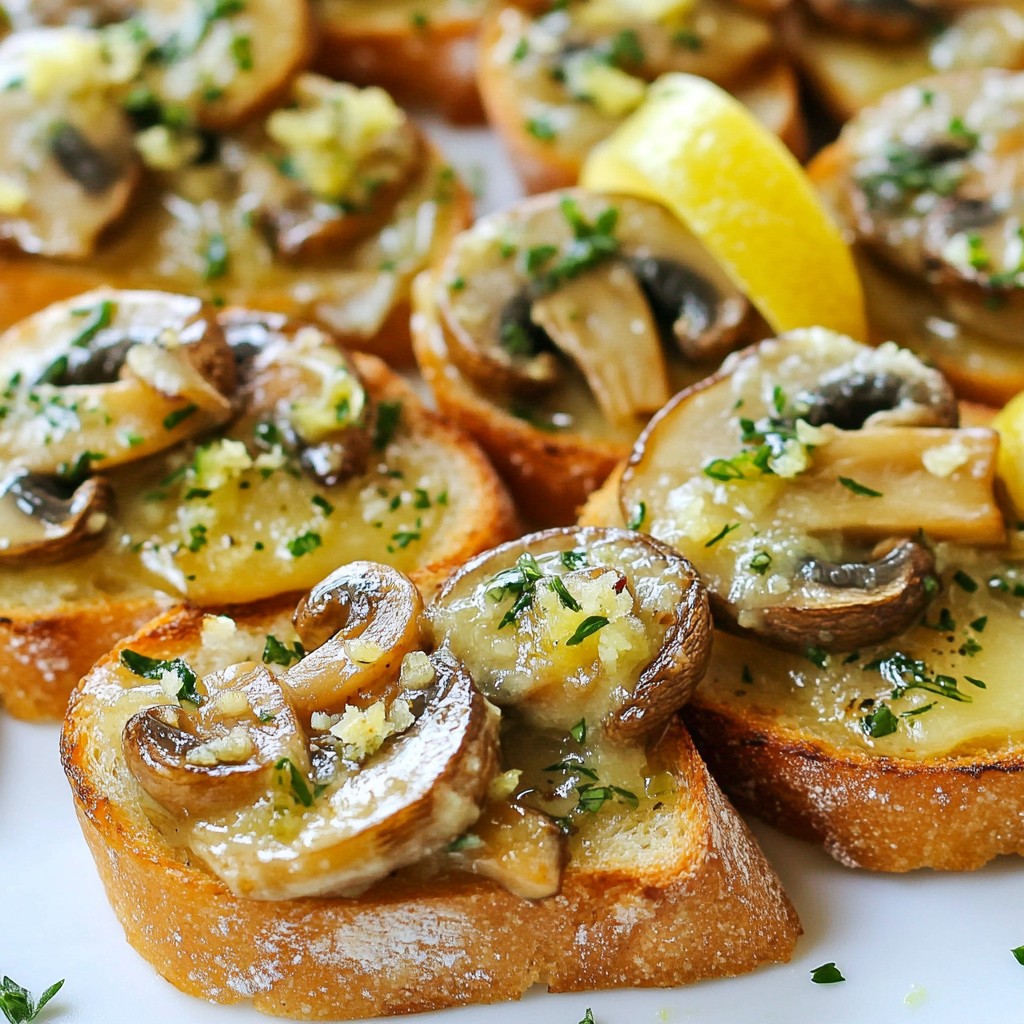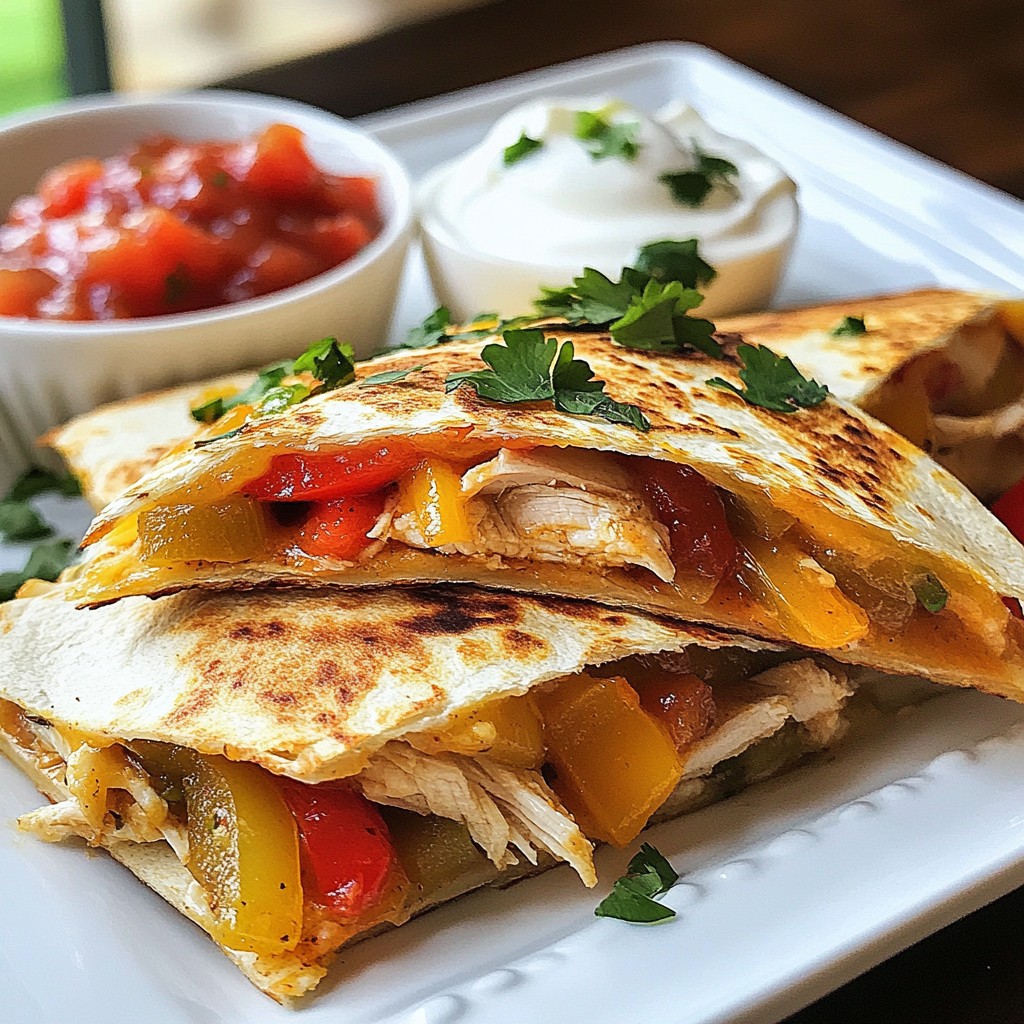Are you ready to make a dish that bursts with flavor? Seafood Pasta Salad is a tasty and refreshing summer treat that’s perfect for your next gathering. With fresh seafood, colorful veggies, and a zesty dressing, this dish is both easy to prepare and impressive to serve. Join me as I guide you through each simple step to create a salad that will have everyone craving more!
Ingredients
Essential Ingredients for Seafood Pasta Salad
When making seafood pasta salad, the right ingredients make all the difference. Here’s what you need:
– Types of seafood to use:
– 1 cup cooked shrimp, peeled and deveined
– 1 cup cooked calamari, sliced into rings
These seafood choices give the salad a fresh and vibrant taste. You can also add crab or scallops for variety.
– Recommended pasta choices:
– 8 oz. fusilli pasta
Fusilli holds the dressing well and adds a fun twist. You can also use penne or rotini if you prefer.
– Fresh vegetables to enhance flavor and crunch:
– 1 cup cherry tomatoes, halved
– 1/2 cup cucumber, diced into small cubes
– 1/4 cup red onion, finely chopped
– 1/4 cup black olives, pitted and sliced
– 1/4 cup fresh parsley, chopped finely
These veggies add color and texture. They also bring a crispness that pairs well with seafood.
Use this list as your guide to create a delicious seafood pasta salad.
Step-by-Step Instructions
Cooking the Pasta
To make perfect fusilli pasta, start with a large pot of salted water. Bring it to a boil and add the pasta. Cook it according to the package instructions until it is al dente. This means it should still have a slight bite to it. Once the pasta is done, drain it in a colander. Rinse it under cold water to stop the cooking process. This step is key to keeping your pasta firm and not mushy. Set the rinsed pasta aside to cool completely.
Mixing the Salad
Now, let’s combine the seafood and veggies. In a big mixing bowl, add your cooked shrimp, sliced calamari, halved cherry tomatoes, diced cucumber, chopped red onion, sliced black olives, and chopped parsley. Gently toss these ingredients together. You want to mix well, but be careful. Too much stirring can break the seafood and veggies apart.
Making the Dressing
For a zesty dressing, gather a few simple ingredients. You need extra virgin olive oil, fresh lemon juice, Dijon mustard, salt, and black pepper. In a medium bowl, whisk these together. Keep whisking until the dressing is well blended and slightly thickened. This emulsification helps enhance the flavor in every bite.
Final Assembly
Add the cooled fusilli pasta to your bowl of seafood and veggies. Drizzle the dressing over the top. Now, gently toss everything together with a large spoon or spatula. Make sure the pasta and seafood are fully coated. After mixing, cover the bowl with plastic wrap or a lid. Refrigerate the salad for at least 30 minutes. This time allows the flavors to blend and deepen. Before serving, toss the salad gently again. Taste it and adjust the seasoning if needed.
Tips & Tricks
Common Mistakes to Avoid
– Overcooking pasta and seafood: This is a big problem. Overcooked pasta turns mushy. Seafood can become tough and chewy. Always cook pasta until it’s al dente. For seafood, just a few minutes will do. You want it tender, not rubbery.
– Using low-quality ingredients: Good food starts with fresh ingredients. Use fresh shrimp and calamari. Choose ripe tomatoes and crisp cucumbers. Low-quality ingredients can ruin your dish. Invest in high-quality items for the best taste.
Enhancing Flavor
– Additional herbs and spices to consider: Fresh herbs make a big difference. Think about adding basil or dill for a unique twist. You can also add a pinch of red pepper flakes for some heat.
– How to make the salad visually appealing: A colorful salad is a feast for the eyes. Use bright cherry tomatoes and green cucumbers. Arrange the salad nicely in a clear bowl. Garnish with parsley and lemon wedges to make it pop.
Serving Suggestions
– Best side dishes to complement seafood pasta salad: Pair your salad with garlic bread or a light green salad. A chilled white wine can also enhance the meal. These sides add balance without overshadowing the pasta salad.
– Ideal occasions for serving this dish: This seafood pasta salad shines at summer picnics and barbecues. It’s also great for family gatherings or beach outings. Serve it as a light lunch or at a potluck for a special treat.
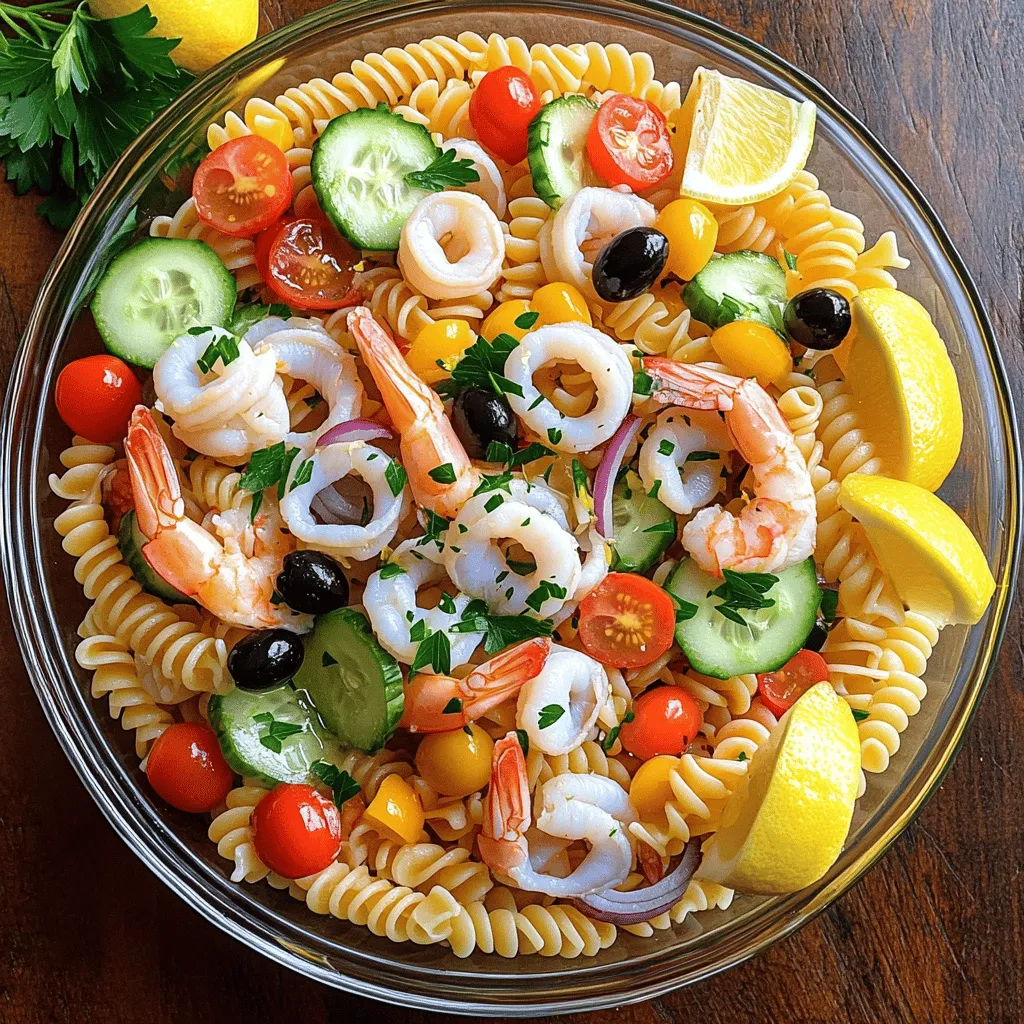
Variations
Dietary Adaptations
For gluten-free options, choose pasta made from rice or corn. These options taste great and work well with seafood. You can also swap shrimp and calamari for fish, like tuna or salmon. These changes keep the dish tasty and light. If you want vegan variations, use chickpeas or tofu instead of seafood. For a zesty dressing, blend lemon juice, olive oil, and herbs for flavor.
Different Flavor Profiles
To add a Mediterranean twist, try adding feta cheese and kalamata olives. This gives the salad a rich flavor and salty bite. You can choose between creamy or vinaigrette dressings. Creamy dressings add a rich texture, while vinaigrettes keep it light and fresh. Each choice changes the salad’s taste, so pick what you like best.
Seasonal Ingredients
Using seasonal ingredients makes your salad even better. For summer, add fresh corn or zucchini for crunch. In winter, roasted vegetables like bell peppers or squash bring warmth. This keeps your seafood pasta salad fresh and exciting year-round. Adjust your recipe to match the seasons, and you’ll enjoy new flavors every time.
Storage Info
How to Store Seafood Pasta Salad
To keep your seafood pasta salad fresh, use airtight containers. Glass or plastic containers with tight lids work well. They help avoid air and moisture that can spoil your salad.
Make sure to cool the salad completely before storing it. If you store it warm, it can lead to sogginess. If you have leftovers, separate them into smaller portions. This way, you can enjoy them later without losing freshness.
Longevity and Shelf Life
You can store seafood pasta salad in the fridge for up to three days. After that, the seafood can begin to spoil. Always check for signs of spoilage before eating.
Watch for changes in smell or color. If the salad smells off or looks dull, it’s best to toss it. Freshness is key to enjoying every bite of your seafood pasta salad.
FAQs
What is the best seafood for pasta salad?
For pasta salad, I love using shrimp and calamari. They add great flavor and texture. Shrimp cooks quickly and stays tender. Calamari offers a nice chewiness that many enjoy. You can also try crab meat for a richer taste. If you like a stronger flavor, consider smoked salmon. Freshness matters, so find seafood that is wild-caught if possible.
Can I make seafood pasta salad ahead of time?
Yes, you can! I often prepare seafood pasta salad a day in advance. This gives time for flavors to blend well. Just keep it covered in the fridge. When you are ready to serve, give it a gentle toss. If it seems dry, add a splash of olive oil or lemon juice before serving.
Is this salad healthy?
Seafood pasta salad is quite healthy! It has lean protein from seafood. The pasta provides carbs for energy. Fresh veggies add fiber and vitamins. The olive oil dressing gives healthy fats. Overall, it’s a balanced meal. If you watch your calories, control the amount of dressing you use. This salad is a great option for a light lunch or dinner.
How long can seafood pasta salad sit out?
Seafood pasta salad should not sit out for too long. Aim to serve it within two hours. After that, the risk of bacteria grows. If it’s a hot day, keep it chilled. Use ice packs under the serving bowl. This keeps your salad safe and fresh for your guests.
Can I add other ingredients?
Definitely! This salad is very flexible. You can add any veggies you have on hand. Bell peppers, radishes, or even avocados work well. To boost flavors, try herbs like dill or basil. For a crunch, toss in some toasted nuts or seeds. The more colorful, the better!Here’s what you need:
– 8 oz. fusilli pasta
– 1 cup cooked shrimp, peeled and deveined
– 1 cup cooked calamari, sliced into rings
– 1 cup cherry tomatoes, halved
– 1/2 cup cucumber, diced into small cubes
– 1/4 cup red onion, finely chopped
– 1/4 cup black olives, pitted and sliced
– 1/4 cup fresh parsley, chopped finely
– 1/3 cup extra virgin olive oil
– 3 tablespoons fresh lemon juice
– 1 teaspoon Dijon mustard
– Salt and freshly ground black pepper to taste
Now, let’s break down the steps:
1. Cooking the Fusilli Pasta: Start by boiling a large pot of salted water. Once it boils, add the fusilli pasta. Cook it according to the package instructions until it is al dente. Drain the pasta and rinse it under cold water. Set it aside to cool.
2. Mixing the Seafood and Vegetables: In a big bowl, combine the cooked shrimp, calamari, cherry tomatoes, cucumber, red onion, black olives, and parsley. Gently toss all these together.
3. Making the Dressing: In another bowl, whisk together the olive oil, lemon juice, Dijon mustard, salt, and pepper. Mix until it blends well.
4. Combining Everything: Add the cooled fusilli pasta to the seafood and veggies. Drizzle the dressing on top. Gently toss it all together with a spoon until everything is coated.
5. Refrigerating: Cover the bowl with plastic wrap. Place it in the fridge for at least 30 minutes. This helps the flavors mix and taste better.
6. Final Touches: Before serving, give the salad a gentle toss again. Check the taste and add more salt, pepper, or lemon juice if you want.
Quick Reference:
– Prep Time: 15 minutes
– Total Time: 45 minutes
– Servings: 4
For a lovely presentation, serve this salad in a clear bowl. It shows off the colors well. You can add more parsley on top and some lemon wedges around the bowl. Enjoy your refreshing seaside delight!
You now have a clear guide to making a delicious seafood pasta salad. Remember to choose quality seafood and fresh veggies for the best flavor. Pay attention to cooking times to avoid overcooking. Experiment with different herbs and dressings for unique tastes. This dish can fit many occasions and dietary needs. Store it right to keep it fresh and tasty. Enjoy creating your own version, and make it a dish everyone loves!
